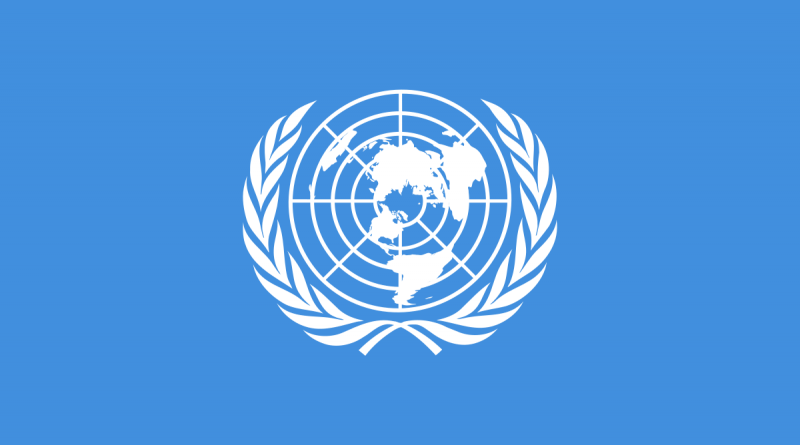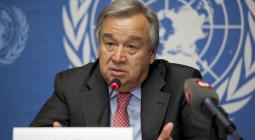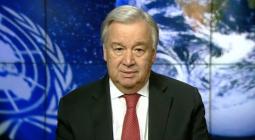UN Sec. General to Petersberg Dialogue on climate action. "The only answer to COVID 19 is brave, visionary and collaborative leadership. The same leadership is needed to address the looming existential threat of climate disruption."

Madam Chancellor,
Ministers,
Dear friends,
Covid-19 has put the lives of billions of people around the globe in turmoil, inflicting grave suffering and destabilizing the global economy.
It has exposed the fragility of our societies and economies to shocks, and it has laid bare deep inequalities that threaten the achievement of the Sustainable Development Goals.
The only answer is brave, visionary and collaborative leadership.
The same leadership is needed to address the looming existential threat of climate disruption.
Last year was second-hottest year on record, part of the hottest decade in recorded history.
Delayed climate action will cost us vastly more each year in terms of lost lives and livelihoods, crippled businesses and damaged economies.
The highest cost is the cost of doing nothing.
We must urgently put in place measures to strengthen resilience and cut greenhouse gas emissions to limit global temperature rise to 1.5 degrees.
Technology is on our side.
So, increasingly, is public opinion, especially the voice of young people.
Many cities and businesses are taking action.
But we still lack the necessary political will.
That is why I continue to advocate for significantly more ambition on mitigation, adaptation and financing.
On mitigation, we need all countries to commit to carbon neutrality by 2050.
On adaptation, we need to support those countries least responsible for climate change, but most vulnerable to its impacts.
They need to build resilience and protect their populations.
And for that we need adequate financing, beginning with the promised mobilization of $100 billion dollars a year for mitigation and adaptation efforts in developing countries.
As we plan our recovery from the coronavirus pandemic, we have a profound opportunity to steer our world on a more sustainable and inclusive path – a path that tackles climate change, protects the environment, reverses biodiversity loss and ensures the long-term health and security of humankind.
By making the transition to low-carbon, climate-resilient growth, we can create a world that is clean, green, safe, just and more prosperous for all.
Ladies and gentlemen,
I am proposing six climate-related actions to shape the recovery.
First: As we spend trillions to recover from Covid-19, we must deliver new jobs and businesses through a clean, green transition.
Investments must accelerate the decarbonization of all aspects of our economy.
Second: where taxpayers’ money is used to rescue businesses, it must be creating green jobs and sustainable and inclusive growth.
It must not be bailing out outdated, polluting, carbon-intensive industries.
Third: Fiscal firepower must shift economies from grey to green, making societies and people more resilient through a transition that is fair to all and leaves no one behind.
Fourth: Looking forward, public funds should invest in the future, by flowing to sustainable sectors and projects that help the environment and climate.
Fossil fuel subsidies must end, and carbon must have a price so polluters will pay for their pollution.
Fifth: The global financial system, when it shapes policy and infrastructure, must take risks and opportunities related to climate into account.
Investors cannot continue to ignore the price our planet pays for unsustainable growth.
Sixth: To resolve both emergencies, we must work together as an international community.
Like the coronavirus, greenhouse gases respect no boundaries.
Isolation is a trap. No country can succeed alone.
We already have a framework for action – the 2030 Agenda for Sustainable Development and the Paris Agreement on climate change.
To that end, I am asking all countries to prepare enhanced national climate action plans, or NDCs, and strategies to reach net zero emissions by 2050.
There are some signs of progress.
Some countries, including Chile, the current COP President, have already submitted enhanced NDCs, and a further 114 countries have announced they will do so.
121 countries have committed to achieving carbon neutrality by 2050.
I encourage the European Union to continue showing global leadership by presenting, by the end of the year, a Nationally Determined Contribution in line with its commitment to become the first climate neutral continent by 2050.
And I am sure the incoming COP President, the UK, will present an ambitious, quality NDC in line with his nation’s strategy to get to carbon neutrality by 2050.
Just last week, the smallest and most vulnerable members of our international family, the small island nations, re-committed to climate ambition, even in the midst of the Covid crisis.
Their leadership should serve as an inspiration to all.
We cannot allow the heavy and rising debt burden of these and other developing countries to serve as a barrier to their ambition.
But the key to tackling the climate crisis is the big emitters.
Let us not forget that the G20 countries collectively account for more than 80 per cent of global emissions and over 85 per cent of the global economy.
They also must commit to carbon neutrality in 2050.
The Paris Agreement was largely made possible by the engagement of the United States and China.
Without the contribution of the big emitters, all our efforts will be doomed.
Ladies and gentlemen,
They say it’s darkest just before the dawn.
These are dark days, but they are not without hope.
We have a rare and short window of opportunity to rebuild our world for the better.
Let us use the pandemic recovery to provide a foundation for a safe, healthy, inclusive and more resilient world for all people.
Thank you.
28 April 2020
UN ENVIRONMENT




